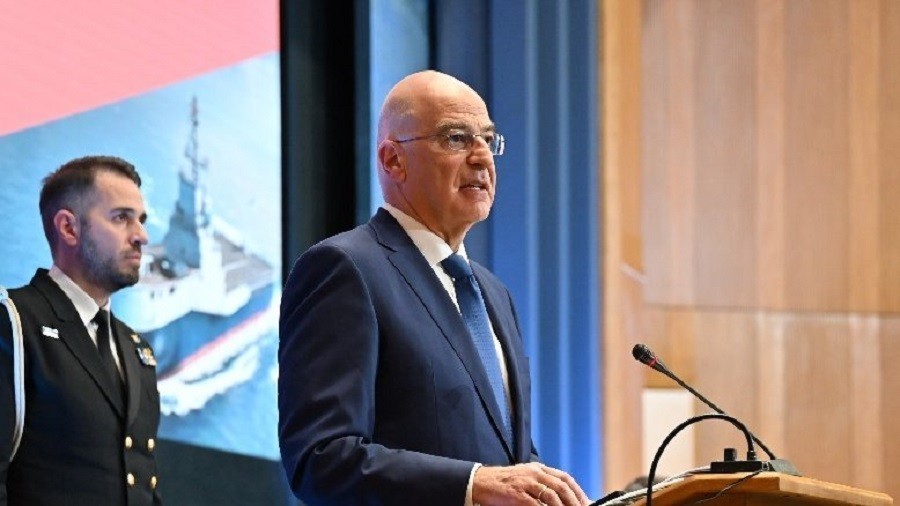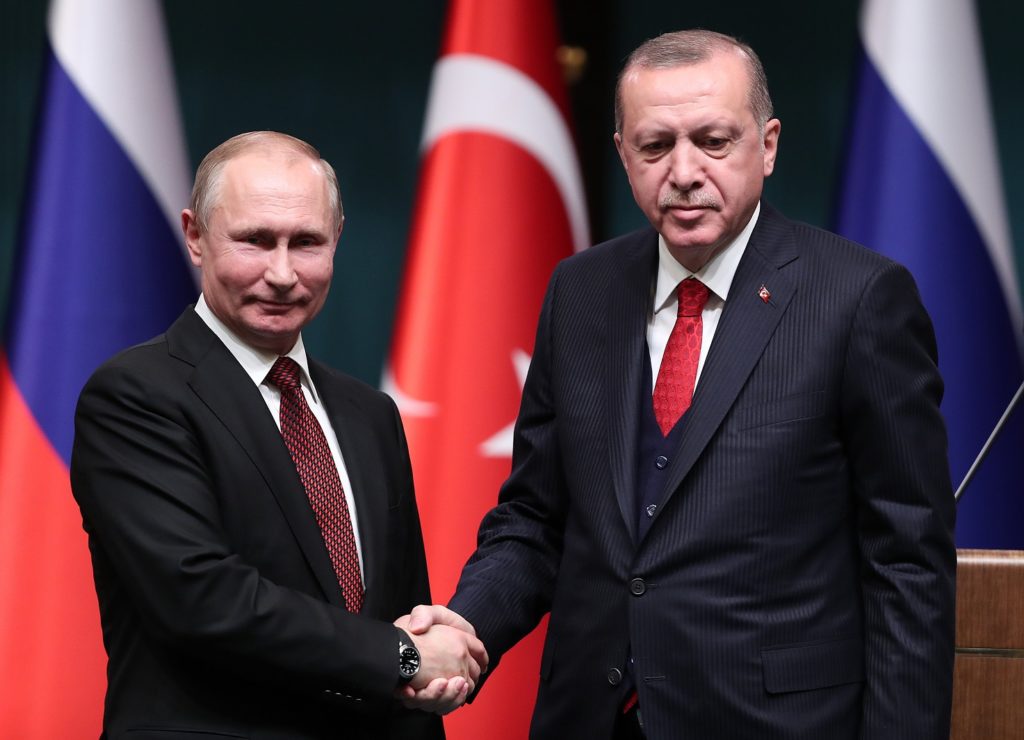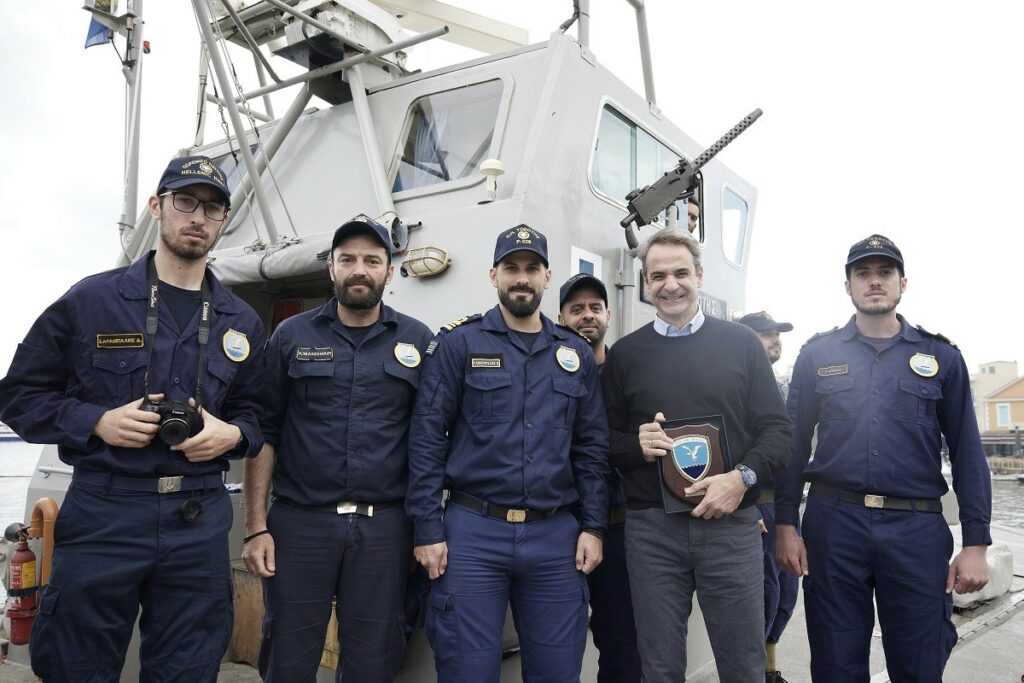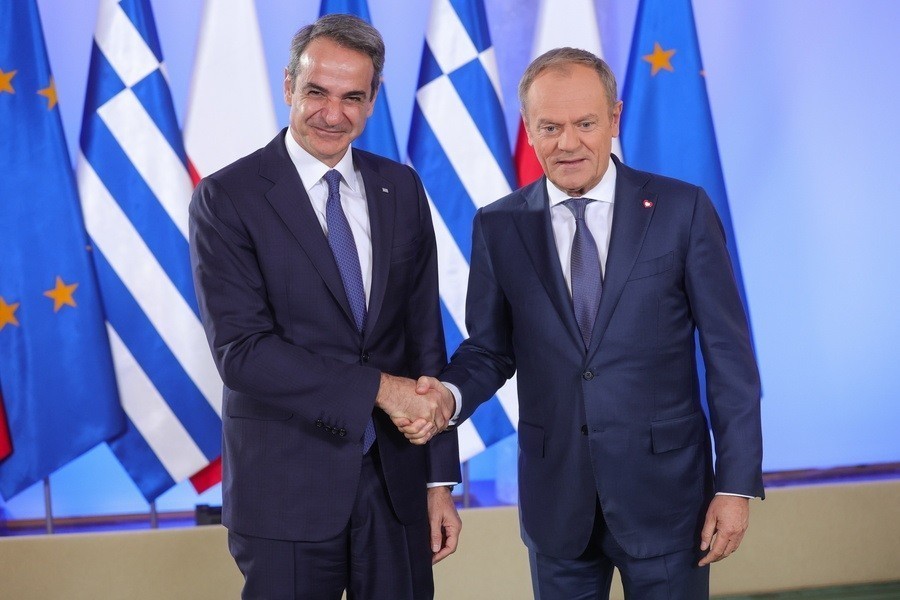
Why does Turkey put its alliance with Russia in jeopardy for the sake of Ukraine?

File photo: Οι πρόεδροι της Ρωσίας, Βλαντιμίρ Πούτιν και της Τουρκίας, Ταγίπ Ερντογάν σε παλαιότερη συνάντηση. EPA, TUMAY BERKIN
During the last six years the world witnessed some essential turning points in the relations between Turkey and Russia. Despite the fact of shooting down a Russian warplane in 2015 and the murder of Andrei Karlov, the Russian ambassador in Turkey,[1] Turkey managed to have allegedly forged a fruitful cooperation with Russia “over conflicts in Syria, Libya and Nagorno-Karabakh, as well as in the defence and energy areas”.[2]
Recently, however, while the Russian army has amassed near the Ukrainian borders with an unpredictable result in the future, the Turkish President shows his support to his Ukrainian counterpart, Volodymyr Zelensky, incurring Vladimir Putin’s wrath. This article explores the reasons behind the Turkish support towards Ukraine and outlines an evaluation on the nature of the relations between Russia and Turkey.
Through the prism of Realism, a theory of international relations, the world is imbued with the balance of powers and states pursue to accomplish their own self-interests. This case is no different. Turkey seeks to help Ukraine because of the vital role it plays for Turkey’s security in the area of the Black Sea. Since 2014 when Russia seized Crimea, Moscow started increasing its naval fleet and it deployed S-400 as well as Kalibr missiles with a range of hitting targets 2,400 km away. Istanbul is 600 km away from Crimea.[3] The security issue posed here is quite obvious. In fact, it was the annexation of Crimea that brought Ukraine and Turkey closer to each other.
Generally, Ukraine serves the role of a ‘buffer zone against Russia, which would allow Turkey to lock up regional dominance along its “crescent” in the Black Sea basin’.[4] Turkey, being one of the littoral states of the Black Sea, is preoccupied with projecting its power in the region and firming up its clout. In addition, Crimea is home to the minority of Tatars who are bound with historical, cultural and ethnic ties to Turkey. In fact, the Turkish President is fervently engaged in talks with both Ukraine and Russia in order to protect the rights of the Crimean Tatars and enhance the fate of those who are detained as political prisoners.[5] Therefore, it is no surprise that Turkey denounces Russian annexation of Crimea,[6] a quite interesting fact when one takes into account the illegal occupation of the northern part of Cyprus by the Turks.
Due to the aforementioned reasons, Turkey seeks to defend its vital interests and support Ukraine. In 2018, Turkey supported Ukraine in its aim for a unified Orthodox Church independent of Russian influence and control.[7] In this way, it would decrease the power of religious diplomacy of Russia and deter the Russians from further extending their influence in Ukraine. In 2019, it sold UAVs to Ukraine in order to reinforce the defensive power of the country against Russian separatists in the eastern part of Ukraine. The two countries agreed on further contracts whereby Turkey is to deliver combat drones to Ukraine along with ammunition and contribute to the construction of patrol boats.[8] They also cooperate in exchanging technological know-how related to the production of drones and naval corvettes.[9]
Moreover, the recent visit of Volodymyr Zelensky in Turkey resulted in a declaration of collaboration in fields such as economy, trade, education and science. Apart from that, both of them engaged in accelerating the negotiations on a Free Trade Agreement.[10] Apart from all this cooperation, Turkey embraces Ukraine’s membership in NATO.[11] Certainly, this makes the bonds of Turkey and Ukraine stronger. Moreover, it enhances the relations between Turkey and the USA since it builds upon the containment strategy used by the latter against Russia and it sets aside -for a while, at least – the thorn of the S-400 missiles purchase by Turkey.
As far as Russia is concerned, the relations with Turkey despite the facts that were mentioned above are characterized by cooperation. Even if they are on opposite sides in the Syrian war, in the Nagorno-Karabakh war that took place in 2020, or the Libyan civil war, Russia is not at loggerheads with Turkey. This is because through Turkey, Russia aims at undermining and weakening NATO[12] using it as its Trojan horse. However, in the case of Ukraine it is a rather difficult goal for the Russians to accomplish, since Ukraine is of high strategic importance to Turkey.
Another reason why Turkey is important to Russia is the fact that Turkey controls the Dardanelles and Bosporus Straits that connect the Black Sea to the Mediterranean,[13] which is Russia’s only way towards the warm waters. Yet, Turkey plans to construct the Canal Istanbul which will not subject to the Montreux Convention that includes the rules of passage through the Turkish Straits.[14] Consequently, NATO could deploy warships in the area that can constitute an imminent threat against Russia.
A few days ago, Russia announced that it will restrict flights to and from Turkey from April 15 to June 1 due to a rise in coronavirus cases in Turkey. This sounds like a retaliation stemming from the political tensions between them and it will have an impact on Turkey because it relies on the revenues from tourism to overcome the economic havoc it has plunged into.[15] Russian Foreign Minister, Sergei Lavrov expressed his discontent by telling ‘Turkey and other “responsible” nations not to feed what he described as “belligerent sentiment” in Ukraine’.[16]
However, it is hard to discern how deep the rupture in their relations is and if Russia will continue showing tolerance towards Turkey because of its importance. It depends on whether the situation in Donbass ignites an actual war between the West and Russia and the alliances that will be formed. Turkey is in a tight spot, trying to tread amid two opposing sides and reap as many benefits as it can from both of them. Nonetheless, half-friends or half-foes will be obliged to choose sides in the end and this might prove tricky.
[1] Z. M. Belbagi, “Clash between unlikely allies Turkey and Russia is inevitable”, March 17, 2021, online at: https://www.arabnews.com/node/1827171, (accessed 17/04/2021).
[2] WION Web Team, “Ukraine-Turkey hold dialogue amid Donbass tension with Russia”, April 10, 2021, online at: https://www.wionews.com/world/ukraine-turkey-hold-dialogue-amid-donbass-tension-with-russia-376720, (accessed 17/04/2021).
[3] S. Mathews, “Ukraine turns to Turkey as Russia threatens full-scale war”, April 11, 2021, online at: https://www.aljazeera.com/news/2021/4/11/russia-talks-of-full-scale-war-with-ukraine-kiev-turns-to-turkey, (accessed 17/04/2021).
[4] I. Kusa, “Ukraine’s Uncertain Foreign Strategy amid Turkey’s Growing Regional Power”, February 13, 2020, online at: https://www.wilsoncenter.org/blog-post/ukraines-uncertain-foreign-strategy-amid-turkeys-growing-regional-power, (accessed 17/04/2021).
[5] Ibid.
[6] Z. Bilginsoy, “The leaders of Ukraine, Turkey stress territorial integrity”, April 10, 2021, https://apnews.com/article/turkey-europe-istanbul-recep-tayyip-erdogan-russia-1f6d9450480f029c48537b195d246857 , (accessed 17/04/2021).
[7] Supranote 4.
[8] German Press Agency, “Russia urges Turkey, others to stop supplying arms to Ukraine”, April 12, 2021, online at: https://www.dailysabah.com/world/europe/russia-urges-turkey-others-to-stop-supplying-arms-to-ukraine, (accessed 17/04/2021).
[9] DW, “Turkey’s Erdogan voices support for Ukraine amid crisis”, April 10, 2021, online at: https://www.dw.com/en/turkeys-erdogan-voices-support-for-ukraine-amid-crisis/a-57157898, (accessed 17/04/2021).
[10] H. Kazanci, “Turkey, Ukraine vow to strengthen strategic partnership”, April 10, 2021, online at: https://www.aa.com.tr/en/politics/turkey-ukraine-vow-to-strengthen-strategic-partnership/2204901, (accessed 17/04/2021).
[11] Ibid.
[12] L. Delvoie, “The complex relationship of Russia and Turkey”, March 23, 2021, online at: https://www.thewhig.com/opinion/the-complex-relationship-of-russia-and-turkey, (accessed 17/04/2021).
[13] Y. Bostan, “Where does Turkey stand on Donbass?”, April 7, 2021, online at: https://www.dailysabah.com/opinion/columns/where-does-turkey-stand-on-donbass, (accessed 17/04/2021).
[14] B. Demir, “Amid war danger in Black Sea, Turkey threatens Montreux Convention”, April 9, 2021, online at: https://www.wsws.org/en/articles/2021/04/10/mont-a10.html, (accessed 17/04/2021).
[15] Reuters, “Russia restricts flights to Turkey as political tensions rise”, April 12, 2021, online at: https://www.reuters.com/world/middle-east/russia-restricts-flights-turkey-covid-19-cases-increase-2021-04-12/, (accessed 17/04/2021).
[16] Bne IntelliNews, “Russia slaps flight restrictions on Turkey after Erdogan backs Ukraine”, April 12, 2021, online at: https://www.intellinews.com/russia-slaps-flight-restrictions-on-turkey-after-erdogan-backs-ukraine-207873/, (accessed 17/04/2021).
The impact of the Suez Canal blockage on global trade: The ‘Black Swan’ incident

